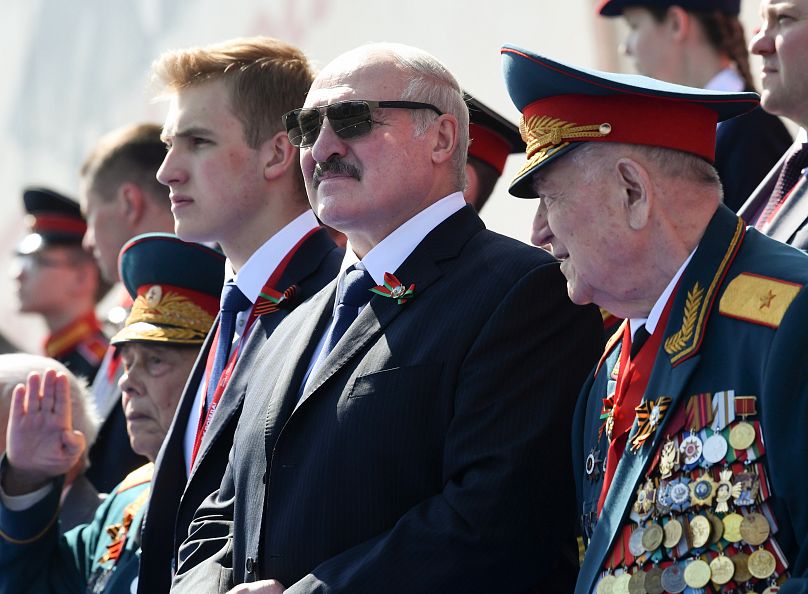Europe's last dictator lost his final shred of support in his response to the coronavirus pandemic. With protests at home and isolation abroad, is this the end of the road?
For the first time since protests during the presidential race of 2010, Belarusians finally see the real chance to overthrow President Alexander Lukashenko after 26 years of dictatorship.
 ADVERTISEMENT
ADVERTISEMENT
 ADVERTISEMENT
ADVERTISEMENT
Even though the opportunities to share our discomfort are limited, the wave of rising civic activism bothers the current administration. It bothers them a lot.
Like a wounded beast deprived of propaganda-fueled oxygen, team Lukashenko is biting back even harder. Uncompromising and desperate, the regime now declares that it is ready to use weapons to protect itself from its own people who dare to express their opinions.
In an environment of brutal threats and paralysing fear, where does the Belarusian civic society finds the hope and strength to fight?
The president’s actions during the COVID-19 pandemic differed from that of the European countries. But the bargaining chips in his unique approach were our lives.
As of the end of June, the number of infected people in Belarus, a country of nine million, compared to that of China's Hubei province, which is 60 million-strong. Meanwhile, Lukashenko blames victims and criticises infected healthcare workers.
His response inevitably hit his reputation. Even Lukashenko’s supporters now ask the question: Has our president been reasonable? And should we expect more accountability from him in the future?
Lukashenko referenced tough economic conditions as a reason for his response to the COVID-19 epidemic. Commenting on whether the country would have a lockdown, he asked: “What will we eat?” In 2020, in Belarus, this is not a rhetorical question.
On the subject of rhetoric, the president went on a number of rants in the run-up to this election. He has threatened to suppress peaceful protest with firearms, he has made derogatory comments about women’s ability to work in politics and business. He has been outrightly rude towards presidential contenders, and illegally detained peaceful demonstrators.
All of that shows that there’s not much left in the presidential arsenal of public influence.
Unlike in the past, Russian elites - preoccupied, as they are, with their own problems - have not provided any support to Lukashenko this time around.
Russia has traditionally been a donor to the current Belarusian government, but with economic relations between the two countries tenser than ever, Russia has deprived Lukashenko of much-needed financial support at the moment when it is needed most.
Young Belarusians are active and demand change. Yesterday’s children - the entire generation born after Lukashenko’s election in 1994 - have now reached voting age.
Meanwhile, the older generation, born in the 1940s-50s and traditionally supporting the current president, is dying. Propaganda tools based on the memory of World War Two, of hunger and devastation, which used to be effective rallying cries for Lukashenko, do not work with the new generation.
Even the generation born in the 1960s-80s - often described as more apolitical - also seem to have reached the limit of their patience. A huge section of the electorate, this generation has traditionally not voted, although their ballots have been falsified on mass and counted as votes for Lukashenko. This was how the president has managed to achieve his 83 per cent of the electorate in previous polls.
As society becomes more digital, it leaves no chance for old-fashioned methods of influencing public opinion. The authorities, who have used traditional channels like state TV and newspapers as their propaganda tools, has come up against the competition posed by new channels and social media, which amounts to an avalanche of coverage for the progressive electorate.
Lukashenko’s only solution is through the use of force and aggression. The fact that his warnings are not empty bluster has become evident from the very start of the campaign. Two potential candidates, one of whom has gathered an overwhelming number of signatories to participate in the presidential election, have already been arrested alongside hundreds of supporters and journalists.
But although we are now closer than ever to a new chapter in the history of Belarus, there is a final leap we need to make: We need to overcome the paralysing fear that was methodically instilled into us over the last decades. The fear of being vocal when everyone else is silent. The fear of discussing politics or even mentioning the president's name over the phone.
The fear that has always haunted us, wherever we are.
With solidarity, we can overcome that fear as a nation. Our fearless friends are protesting in Belarus, and we refuse to be silent here. On June 25, we will come to the Embassy of the Republic of Belarus in London, alongside 300 other Belarusians, and speak against threats, against violence, against arrests, ignorance and silence - and against fear.
The hope is that as hundreds of thousands of Belarusian people unite to express support for change, the fear dissipates not only for protesters but also for the Belarusian police, the only pillar left of support Lukashenko’s regime. One by one, police officers are refusing to execute criminal orders. And with each day change in Belarus does not only seem likely, it feels inevitable.
- Aliaksandra Lamachenka is an activist and Belarussian citizen living in London
_____________
Are you a recognised expert in your field? At Euronews, we believe all views matter. Contact us at view@euronews.com to send pitches or submissions and be part of the conversation.











